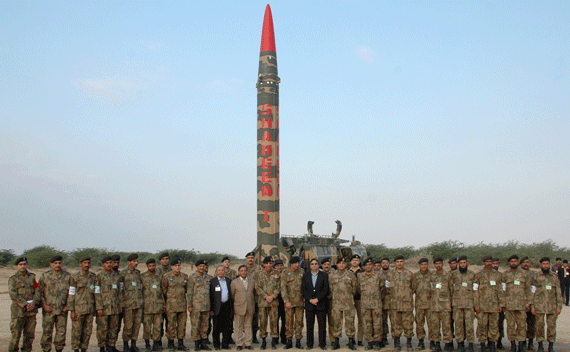The GOP Debate and Pakistani Loose Nukes
More on:

The commentariat hasn’t had many nice things to say about Rick Perry’s performance at Thursday’s GOP presidential debate. I certainly understand the criticism. But when it comes to the foreign policy portion of the debate at least, I have some sympathy for the Texas governor.
Why? Well, his main rival, Mitt Romney, got a foreign policy question that was the equivalent of a Tim Wakefield knuckleball that didn’t knuckle: “How would you approach the new reality in the Middle East, specifically with regards to our ally, Israel?” Romney didn’t even bother to acknowledge that the Arab Spring has created dilemmas for U.S. diplomacy in the region, dilemmas that he will confront should he become president. He instead used his allotted one-minute response to launch a full-throated defense of Israel. He even managed to toss in the canard that Obama “went around the world and apologized for America.” Romney’s political strategists couldn’t have scripted it any better.
Herman Cain got a similar softball: “How would you respond to the unilateral declaration of a Palestinian state?” Cain responded by, you guessed it, saying he would stand solidly behind Israel.
Having seen the first two softballs that moderator Brett Baier tossed up, I wouldn’t blame Perry if he expected a similar batting practice pitch. Instead, he got a chin-high Justin Verlander fastball. His question: If “you got a call at 3 am telling you that Pakistan had lost control of its nuclear weapons, at the hands of the Taliban, what would be your first move?” Perry stumbled through an answer that mentioned Admiral Mike Mullen, the Haqqani, the Pakistani country, India, F-16s, and Taiwan. It was a multi-car pile-up of debate talking points.
But as I said, I sympathize with Perry. No candidate wants to get a question about Pakistani loose nukes just as no president wants to get a phone call about them. There is no good—or at least, no simple and satisfying—answer. Rick Santorum subsequently proved as much when he volunteered:
We should be establishing relationships in Pakistan with allies of ours, folks like relationships with President Musharraf who we had in the past with others in that country so if in fact something like that would occur we could work in concert to make sure that that coup could be overturned and make sure those nuclear weapon do not fall in those hands.
Santorum’s answer glosses over the fact that Pakistan’s military and intelligence services are riddled with officers who are deeply hostile to the United States. (If you have any doubts on that score, read yesterday’s excellent New York Times front-page story on the Haqqani network as well as Fred Kaplan’s superb analysis over at Slate of Pakistan’s strategy in Afghanistan.) It’s not clear we know whom to trust or whether they could deliver in a pinch even if we did.
The other GOP presidential candidates stayed away from the Pakistani question, though Newt Gingrich noted that Baier’s Pakistan scenario is “not too far-fetched to worry about.” The former speaker is right. I just wish that he, or I, had a satisfying answer about what to do.
Do you?
More on:
 Online Store
Online Store